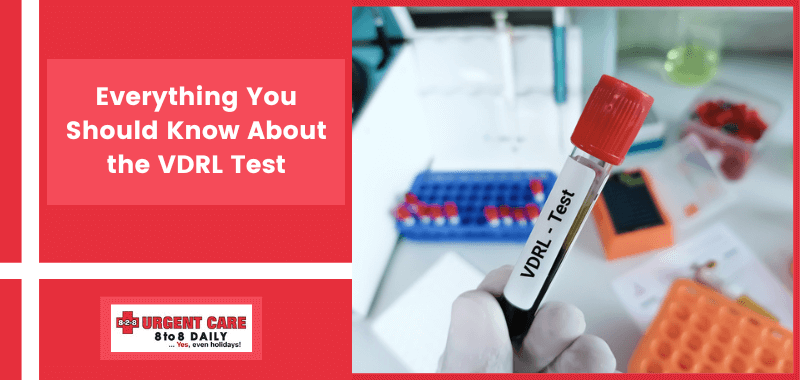


Venereal disease research laboratory test, also known as the VDRL test, is a screening test for assessing and diagnosing syphilis, a sexually transmitted disease. The test is conducted to measure antibodies produced by our body against the bacteria Treponema Pallidum that causes Syphilis.
Since reaching a historic low in 2000 and 2001, the rate of syphilis has increased almost every year, with a total of 133,945 syphilis cases reported in 2020, including 41,655 cases of primary and secondary (P&S) syphilis (most infectious form). However, the VDRL test is a great way to diagnose this disease in its early stages, helping patients recover in time. The test doesn’t rely on syphilis symptoms and checks directly whether antibodies in the human body respond to antigens produced by bacteria-damaged cells, making it useful for asymptomatic patients.
Let’s learn more about this test in detail.
Your doctor may recommend this test if you:
The symptoms of syphilis can be mild to severe, depending on the extent of the infection. However, in some cases, syphilis may not cause any symptoms for several years.
The primary symptoms of syphilis include:
The secondary symptoms of syphilis include:
The tertiary symptoms of syphilis include:
Normally, doctors perform a VDRL test by drawing blood samples from a person. Yet, they can also perform the test using a sample of CSF (Cerebral Spinal Fluid).
A blood sample drawn from a body involves a doctor inserting a needle into a vein in the elbow. The blood flows into an airtight supply tube connected to the other end of the needle.
Doctors sometimes tie a rubber band, or a compression bandage, over the injection site before inserting the needle to make the veins easy to locate.
Doctors initiate the procedure by collecting samples of CSF through a process known as a lumbar puncture. A person lies on their side and pulls their knees towards their chest.
The doctor disinfects and numbs the injection site with local anesthesia. Then they insert a spinal needle into the lower spine, extracting a small amount of CSF.
The VDRL test negative results indicate no syphilis antibodies were detected in the blood specimen. The positive results indicate that a person must have a potential secondary or latent stage of syphilis. There is one thing to consider while understanding VDRL Test results. A strong possibility while comprehending the results is that it might appear falsely negative if tested in the initial phases of syphilis infection.
An NTT (Nontreponemal Test) has a 70–90% sensitivity in primary syphilis. Therefore, it needs to be confirmed by a treponemal test. The serological tests show positive outcomes in the second phase. Also, all the tests and trials conducted, including the VDRL test, are roughly 100%.
However, 1–2% of patients’ false-negative nontreponemal tests can arise due to the hook effect. A hook effect is an immunological effect where antibodies' effectiveness in forming immune structures is impaired when antibody concentrations are remarkably increased.
Besides, the test can give false positives if you are suffering from the following conditions:
Sometimes, pregnancy could also be the reason for a false positive VDRL test report.
A VDRL test is important to detect syphilis symptoms in the human body, but it is also important to understand that there are some possible risks attached to the VDRL test. However, the test does not involve any serious risks; the following mild complications after a blood VDRL test include,
If a patient goes through the lumbar puncture procedure, it involves the risks such as,
Hence, always consult a specialist before opting for a VDRL test.
The purpose of syphilis treatment is to make people aware that syphilis is a sexually transmitted disease. Thus, it’s important to reduce the risk by practicing safe sex and getting tested regularly. Also, Syphilis is curable if diagnosed at the right time and proper treatment is given from the beginning. The treatment strategy differs from person to person based on symptoms, stages, and other personal factors. Consult a professional to get started with your treatment.
If you are experiencing syphilis symptoms or if you want to take a precautionary test, then contact us today for STD Testing Services. At 8-2-8 Urgent Care, with best-in-class facilities and a world-class team of doctors, we are committed to providing the most accurate test results and perfect treatment options while keeping all your medical information confidential. Visit us at our walk-in clinic in Oceanside, CA, or schedule an appointment today!